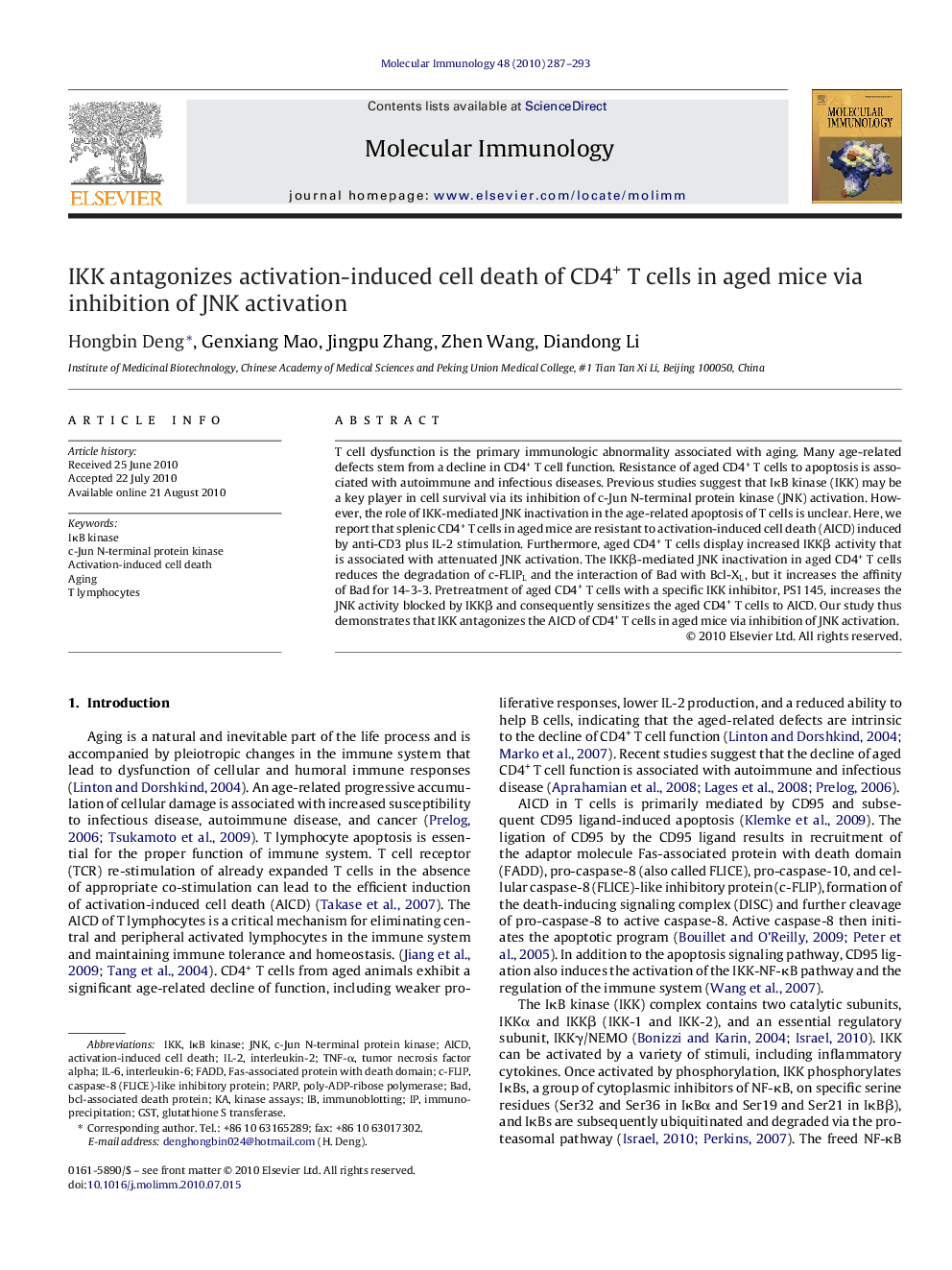| Article ID | Journal | Published Year | Pages | File Type |
|---|---|---|---|---|
| 2832020 | Molecular Immunology | 2010 | 7 Pages |
T cell dysfunction is the primary immunologic abnormality associated with aging. Many age-related defects stem from a decline in CD4+ T cell function. Resistance of aged CD4+ T cells to apoptosis is associated with autoimmune and infectious diseases. Previous studies suggest that IκB kinase (IKK) may be a key player in cell survival via its inhibition of c-Jun N-terminal protein kinase (JNK) activation. However, the role of IKK-mediated JNK inactivation in the age-related apoptosis of T cells is unclear. Here, we report that splenic CD4+ T cells in aged mice are resistant to activation-induced cell death (AICD) induced by anti-CD3 plus IL-2 stimulation. Furthermore, aged CD4+ T cells display increased IKKβ activity that is associated with attenuated JNK activation. The IKKβ-mediated JNK inactivation in aged CD4+ T cells reduces the degradation of c-FLIPL and the interaction of Bad with Bcl-XL, but it increases the affinity of Bad for 14-3-3. Pretreatment of aged CD4+ T cells with a specific IKK inhibitor, PS1145, increases the JNK activity blocked by IKKβ and consequently sensitizes the aged CD4+ T cells to AICD. Our study thus demonstrates that IKK antagonizes the AICD of CD4+ T cells in aged mice via inhibition of JNK activation.
